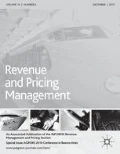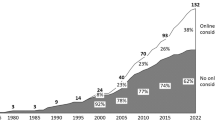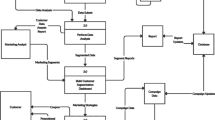Abstract
Developing practical models for capturing competitive effects in revenue management and pricing systems has been a significant challenge for airlines and other industries. The prevalent mechanisms of accounting for competitive effects rely on changing the price structure and making manual adjustments to respond to dynamically evolving competitive scenarios. Furthermore, micro-economic models have also not become popular in practice primarily because of the simplistic mechanisms proposed for modeling consumer behavior in a competitive setting. In particular, many of these models assume that the customers always seek the lowest price in the market, that is they are fully flexible. In practice, customers may display some degree of affinity or loyalty to an airline and may pay a premium for their preferred choice. On the other hand, almost all early revenue management models did not explicitly consider competitive effects and assumed that an airline’s demand only depends on their prices i.e., demand is fully dedicated to an airline (loyal). This paper develops a model to capture more realistic competitive dynamics by including both these types of customer behavior. We also develop a Bayesian machine learning based demand forecasting methodology for such models with explicit competitive considerations and show the benefit of this approach over traditional models on a real airline data set.











Similar content being viewed by others
References
Bishop, C.M. 2006. Pattern Recognition and Machine Learning. New York: Springer.
Blei, D.M., A.D. Kucukelbir, and J. McAuliffe. 2017. Variational inference: A review for statisticians. Journal of the American Statistical Association 112 (518): 859–877.
Boyd, E.A., and R. Kallesen. 2004. The science of revenue management when passengers purchase the lowest available fare. Journal of Revenue and Pricing Management 3: 171–177.
Cooper, W.L., T. Homem-de-Mello, and A.J. Kleywegt. 2015. Learning and pricing with models that do not explicitly incorporate competition. Operations Research 63 (1): 86–103.
Dudey, M. 1992. Dynamic Edgeworth-Bertrand competition. The Quarterly Journal of Economics 107 (4): 1461–1477.
Fiig, T., M. Wittman, and C. Trescases. 2019. Towards a Competitor-Aware RMS, presented at AGIFORS RM Study Group. Panama: Panama City.
Hastie, T.J., and R.J. Tibshirani. 1990. Generalized additive models. Boca Raton: Chapman & Hall/CRC.
Isler, K., and H. Imhof. 2008. A game theoretic model for airline revenue management and competitive pricing. Journal of Revenue and Pricing Management 7 (4): 384–396.
Kumar, R., A. Li, and W. Wang. 2018. Learning and optimizing through dynamic pricing. Journal of Revenue and Pricing Management 12: 63–77.
Martínez-de-Albéniz, V., and K. Talluri. 2011. Dynamic price competition with fixed capacities. Management Science 57 (6): 1078–1093.
Singh, S. 2019. Chapter 3: Towards explicitly incorporating competition under flexible models of demand in dynamic pricing. Doctoral Thesis in Operations Management, Tepper School of Business, Carnegie Mellon University, Pittsburgh, Pennsylvania.
Singh, S., and Walczak, D. 2019. Explicitly incorporating competition and realistic models of customer demand in dynamic pricing, working paper.
Talluri, K., and G. Van Ryzin. 2004. Revenue management under a general discrete choice model of consumer behavior. Management Science 50 (1): 15–33.
Talluri, K., and G. Van Ryzin. 2004. The theory and practice of revenue management. Dordrecht: Kluwer Academic Publishing.
Wainwright, M., and M. Jordan. 2008. Graphical models, exponential families, and variational inference. Foundations and Trends in Machine Learning 1 (1–2): 1–305.
Walczak, D., and R. Kumar. 2019. Degrees of information awareness in revenue management and dynamic pricing, presented at INFORMS RM & Pricing Conference. Stanford, CA: Stanford Graduate School of Business.
Wang, C., J. Paisley, and D.M. Blei. 2011. Online Variational Inference for the Hierarchical Dirichlet Process. Proceedings of the Fourteenth International Conference on Artificial Intelligence and Statistics, PMLR 15: 752–760.
Wang, W., S. Arunachalam, R. Kumar, A. Simrin, D. Walczak, and B.R. Guntreddy. 2019. Will they stay or will they go? Competitive RM with loyal and fully flexible customers, presented at AGIFORS RM Study Group. Panama: Panama City.
West, M., and J. Harrison. 1997. Bayesian Forecasting and Dynamic Models, 2nd ed. Series in Statistics. New York: Springer.
Wood, S.N. 2000. Modelling and smoothing parameter estimation with multiple quadratic penalties. Journal of the Royal Statistical Society Series B 62 (2): 413–428.
Wood, S.. N. 2017. Generalized additive models: An introduction with R, 2nd ed. Boca Raton: Chapman & Hall/CRC.
Zeni, R. H. 2001. Improved forecast accuracy in airline revenue management by unconstraining demand estimates from censored data.PhD thesis, Graduate School, Rutgers, State University of New Jersey.
Acknowledgements
We are grateful to Dr. Karl Isler for his insights on Bayesian Variational Inference which helped us develop the methodology for class-free models. We are also grateful to the referees for their valuable comments that helped improve this paper.
Author information
Authors and Affiliations
Corresponding author
Additional information
Publisher's Note
Springer Nature remains neutral with regard to jurisdictional claims in published maps and institutional affiliations.
Rights and permissions
About this article
Cite this article
Kumar, R., Wang, W., Simrin, A. et al. Competitive revenue management models with loyal and fully flexible customers. J Revenue Pricing Manag 20, 256–275 (2021). https://doi.org/10.1057/s41272-021-00311-4
Received:
Accepted:
Published:
Issue Date:
DOI: https://doi.org/10.1057/s41272-021-00311-4




